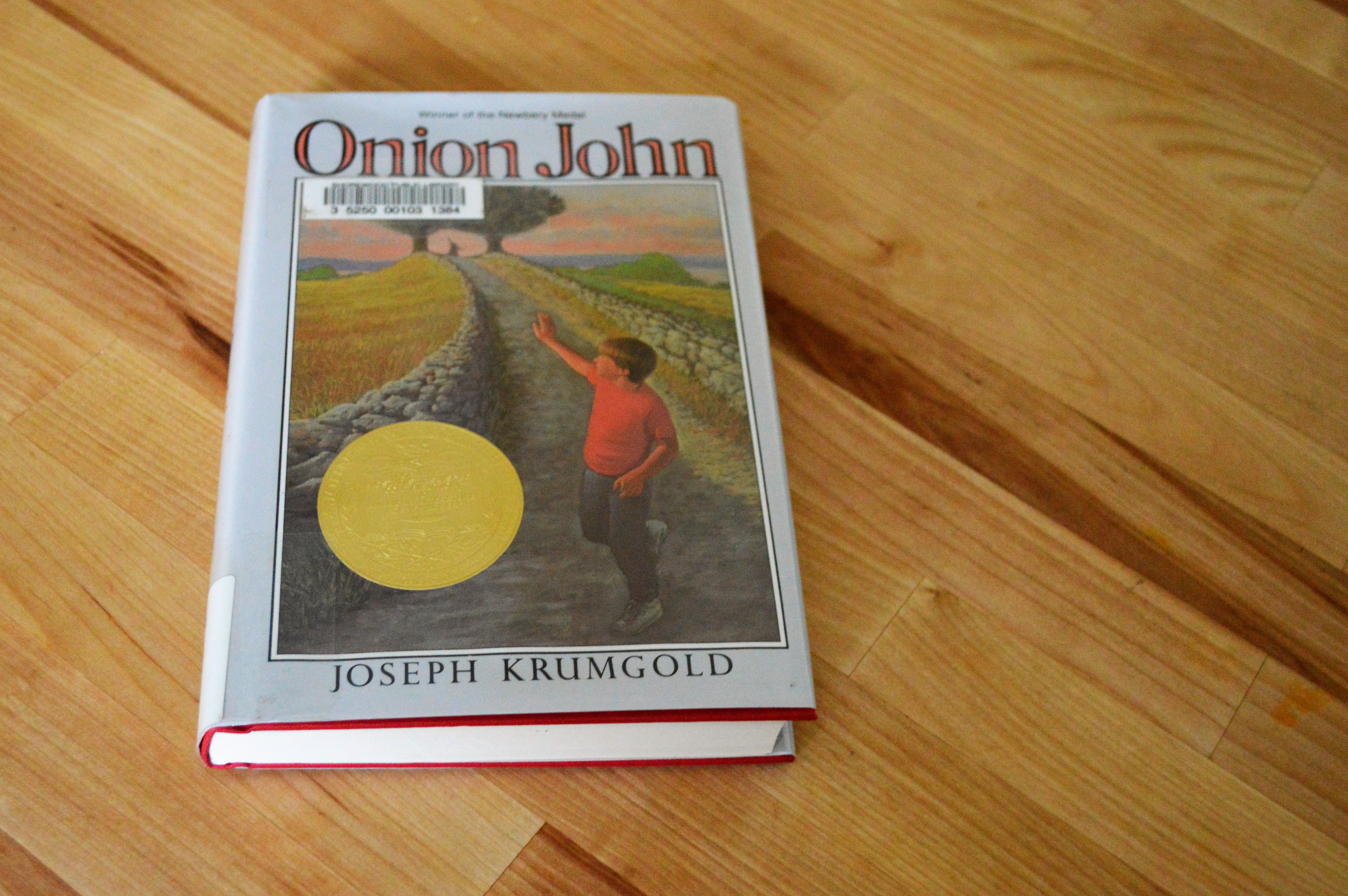
Joseph Krumgold won his second Newbery in 1960 with Onion John, becoming the first (of 6 to-date) authors to win two Newbery medals. Onion John follows the unlikely friendship of Andy, a baseball loving 12 year old in Serenity, New Jersey, and Onion John, an older Eastern European immigrant who lives on the edge of town growing onions, dumpster diving, and working odd jobs. Onion John speaks a version of English that seems to make sense only to him, until one day Andy is able to decipher his patois. Andy is caught between his new friend Onion John’s strange beliefs of making rain from ceremonial parades or gold under the full moon in one of his four bathtubs and Andy’s father who believes in science and logic and hopes that his son will fulfill his own lost childhood dream of becoming an astronaut.

What I liked. My favorite part of the book was the very last paragraph, which wrapped up the book in such a beautiful way. You’ll have to read it to understand exactly how it manages to wrap things up for all three main characters in a sweet but very understated way.

What was interesting. I thought that Onion’s John’s strange superstitions and beliefs were by far the most interesting part of the book. Children’s contact with lower class and superstitious beliefs from caregivers (usually a nurse) is a trope throughout literature and something scholars have studied in academic settings. (Think of how in CS Lewis’ Voyage of the Dawn Treader, Reepicheep recalls his nurse telling him of the end of the world where the water grows sweet.) In grad school I read a strange but influential book called The Cheese and the Worms: The Cosmos of a Sixteenth-Century Miller by Carlo Ginzburg which argues that basically pagan beliefs often survive this way through children’s contact with people who have old pagan beliefs, coming into the historical record only here and there through Inquisition trial transcripts. Onion John has a smattering of alchemical, pagan, and high church beliefs that he shares with Andy. Andy’s father does not appreciate them at all, and for a big part of the book, Andy is caught between the two worlds of superstition and science. When Andy eventually questions Onion John’s beliefs, Onion John becomes very Peter Pan-like, saying Andy has grown up and, no longer needs him.

Similarity to other Newbery winners. The Eastern European theme in Onion John is something similar to Newberies like Dobry and The Trumpeter of Krakow—which both have young boys coming of age and a lot of gardening and building of house themes (Dobry) and alchemy and fires (Trumpeter of Krakow). The small town life has a similar feel to Thimble Summer. I admit that after reading Kromgold’s first book …And Now Miguel I wasn’t overly optimistic that this would be one of my favorite Newberies. (I reflected last month about how The Witch of Black Bird Pond handled narrative tension in a way that helped me articulate what really bothered me about …And Now Miguel.) Onion John had a lot of that same father-son tension throughout the book, but it was broken up with Andy’s father trying to change Onion John, building him a house so that he could be civilized.

What were some limitations. Krumgold really does father-son misunderstanding well (too well, perhaps; it’s awfully awkward and realistic) but sometimes I didn’t quite follow the logic of why the characters understand each other’s motives and desires sometimes but not other times. It seemed mostly to do with furthering the plot and not because it is what a character would seem to do.

What it teaches me as a writer. Krumgold’s work reminds me that having characters who misunderstand each other is both a powerful way to introduce conflict into the plot (especially when they do really love and care for one another, but still misunderstand each other) but that misunderstandings have to be a logical extension of the characters personality and characteristics or the audience is going to feel that it’s just convenient for the author. Onion John also reminds me of the power of a sad ending made a bit sweeter by an understated, suggestive ending.

Have you read Onion John? What are your favorite books books that center on family misunderstandings?
*Note* This post contains Amazon affiliate links, which means if you were to buy a book, I’d get a tiny commission at no cost to you. Thanks for supporting Stories & Thyme!*

